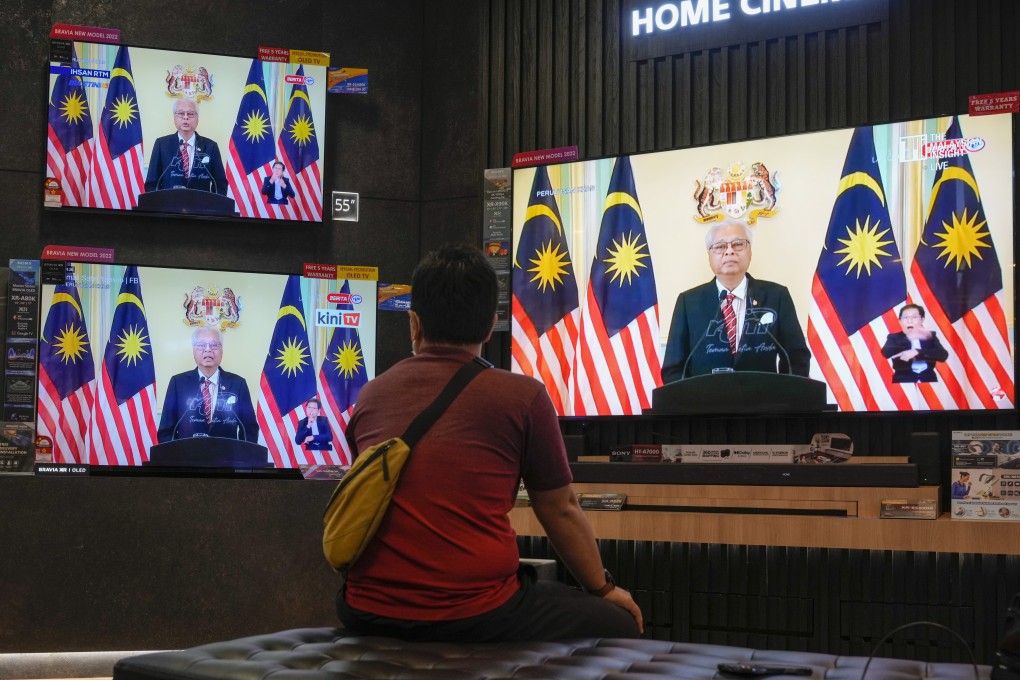Malaysia PM dissolves parliament, paving way for snap election during monsoon season
- PM Ismail Sabri’s decision, endorsed by the king, comes despite pleas from the opposition to hold the polls after the November monsoon season
- The ruling Umno party is seeking to consolidate its political strength after regaining its footing in the aftermath of a crushing defeat in the 2018 polls

“In line with Article 40 (20)(b) and Article 55(2) of the Federal Constitution, His Royal Highness the Yang di-Pertuan Agong, exercised his prerogative and granted my request for the 14th Parliament to be dissolved today,” Ismail Sabri said in a televised address.
The 62-year-old leader, who last year became the country’s third prime minister since 2018, said he was calling the vote “to put an end to criticism that this is an illegitimate, back door government”.
His United Malays National Organisation (Umno) was defeated in the 2018 general election but is currently the de facto ruling party due to a series of political manoeuvres since that vote.
National polls are not due until the third quarter of 2023, but Ismail Sabri had been under sustained pressure to call for early elections from Umno, which wants to capitalise on strong victories in two state elections over the past year.